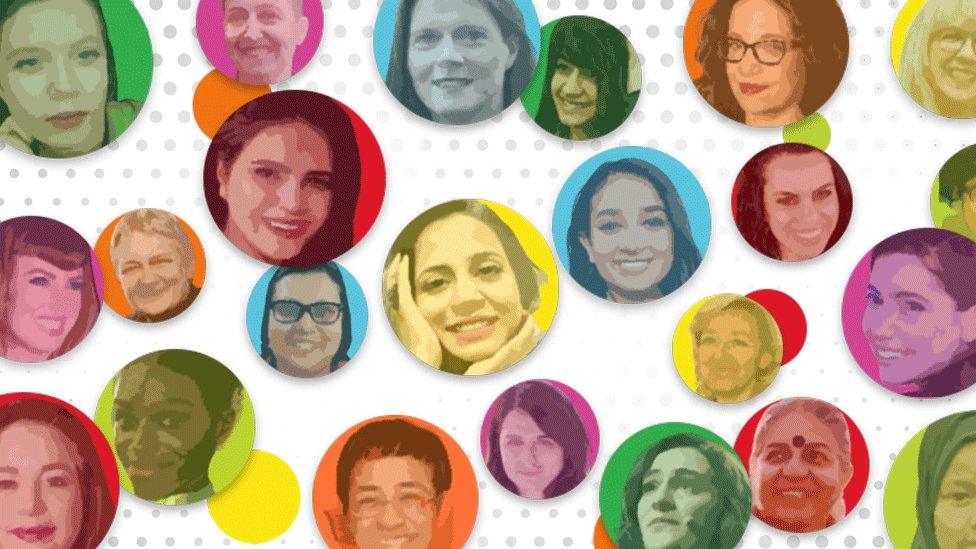The doctor trying to solve the mystery of male infertility
- Published
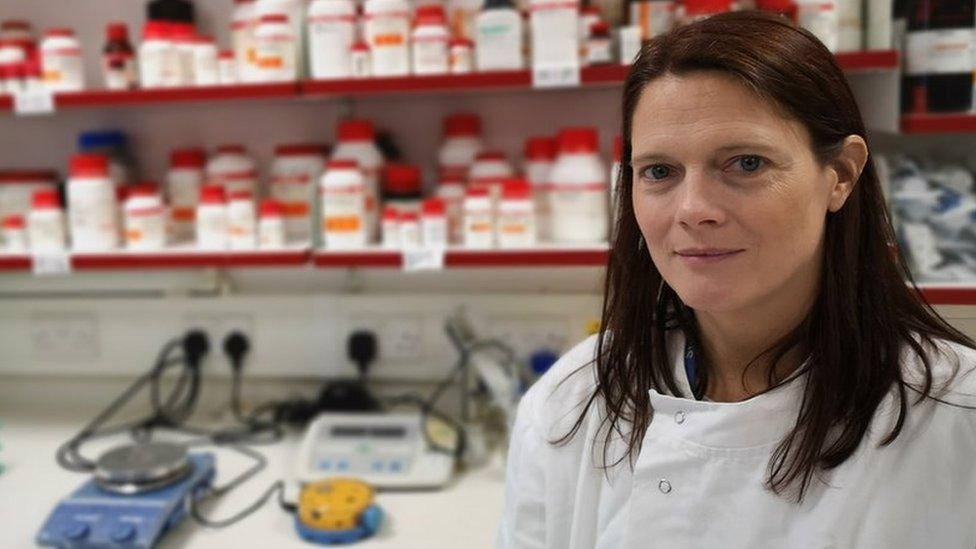
Dr Sarah Martins da Silva said the subject of sperm and reproduction is "not well-represented"
"Imagine a world where nobody can get pregnant. The population is ageing. We face extinction of the human race - and all because of male infertility."
Dr Sarah Martins da Silva, one of the BBC's 100 most inspiring and influential women of 2019.
The senior lecturer in reproductive medicine at Dundee University was included on that list because of her work to solve the problem of male infertility.
She hopes that by doing so, she will stop women having to undergo unnecessary and invasive fertility treatments.
Dr da Silva admits that her stark warning - delivered at a BBC 100 Women event in Delhi - was provocative, designed to illustrate the importance of the issue.
Sperm count levels have fallen by 50% to 60% in the last four decades.
"If we don't know what's going on, if we can't do anything to stop it, then we could potentially, in 40 years or 100 years, be in a position where sperm counts are zero," she said.
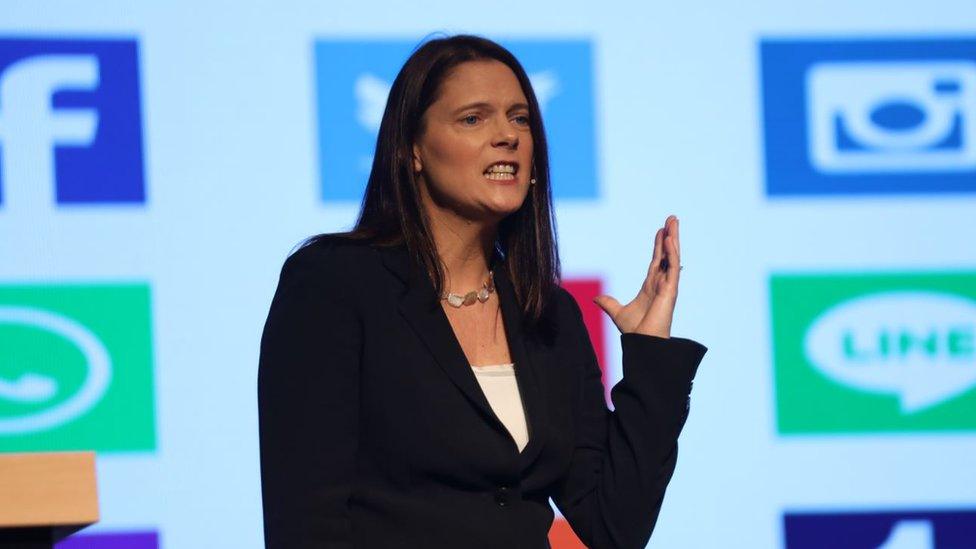
Dr da Silva was a speaker at the BBC 100 Women event in Delhi, India
The infertility rate in the UK is about one in six.
Dr da Silva said that in about half of the cases she sees, there is an issue with sperm count or function.
With no current treatment to improve sperm function, the burden remains on the woman to undergo invasive fertility treatments such as IVF or ICSI.
She said these involve the woman going through a "quite involved" medical process of hormone injections, a minor surgical procedure and then a fertilisation procedure.
Dr da Silva said: "I always feel it's such an inequality to be doing all of this medical treatment for her, because of a male health problem."
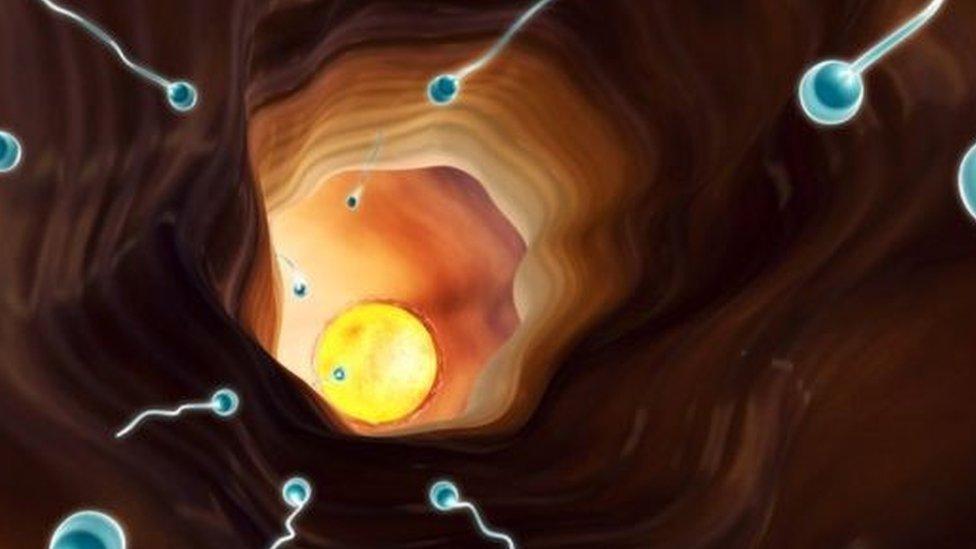
Sperm count levels have fallen by 50 to 60% in the last four decades
She said that male patients will "not surprisingly" ask if there anything they can take to make a difference.
"And the simple answer is, well, no there isn't."
Dr da Silva said that in terms of societal expectations it is "very much left with the woman" to "sort out her contraception or sort out getting pregnant".
She added: "If we don't talk about it, if there's no pressure from men and couples and there isn't a research critical mass, we're facing a real battle to get anywhere."
She said the subject of male reproduction was "not well-represented" and was "a niche field" within scientific research.
"Infertility as a specialty sits within gynaecology. Perhaps there is less focus on the man in a fertility clinic setting because most of the consultants there are female specialists."
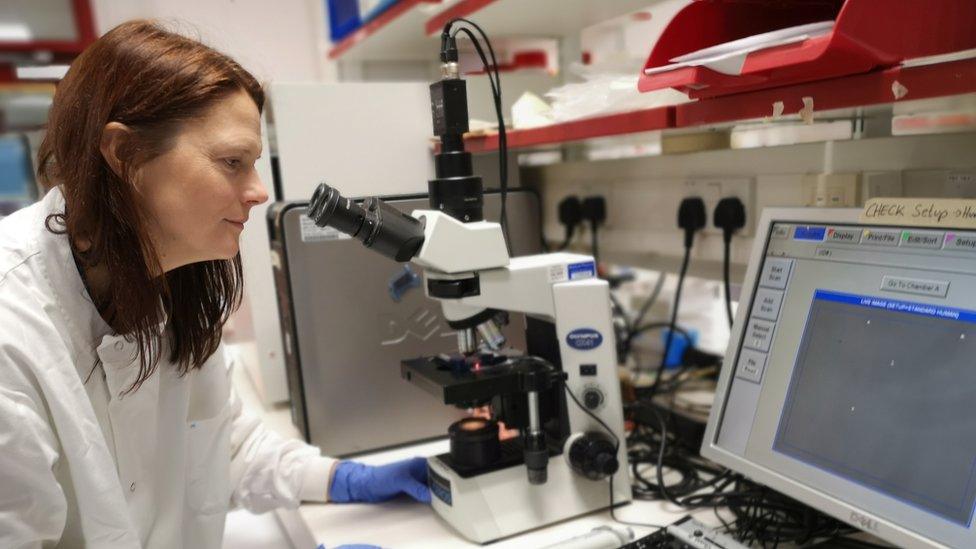
Dr da Silva's team hope a treatment to boost sperm count will one day be available
Dr da Silva was the only Scot on the 100 Women list, and said she was "totally delighted" to be included.
"I wasn't expecting it at all. What an opportunity to talk about what we're doing in Dundee and let the world know."
She also features in a new BBC Scotland documentary on fertility issues, Making Babies.
The Dundee team's research focuses on how a sperm works, with a particular focus on the function of the sperm-specific calcium CatSper channel.
Dr da Silva said: "If there's a problem with the way calcium is internalised there can be fundamental issues with a man's fertility.
"We have found various pesticides that can affect the way that channel works.
"We are now trying to identify drugs to make that channel work better."
'That's my motivation'
Dr da Silva said the ultimate aim was to develop a treatment - a tablet that a man can take to improve his sperm count.
But this will not happen overnight.
Any drug must be rigorously tested to ensure it does not create a problem for the embryo.
Securing funding and carrying out clinical trials is also a drawn-out process.
Dr da Silva said: "As a doctor, faced with an infertile couple in front of me, that's my motivation.
"To help and to move things in terms of the burden of fertility and reproduction on women, and to develop new treatments and new options for infertile men."
Making Babies is on the BBC Scotland channel at 22:00 on Tuesday 29 October.
- Published16 October 2019
